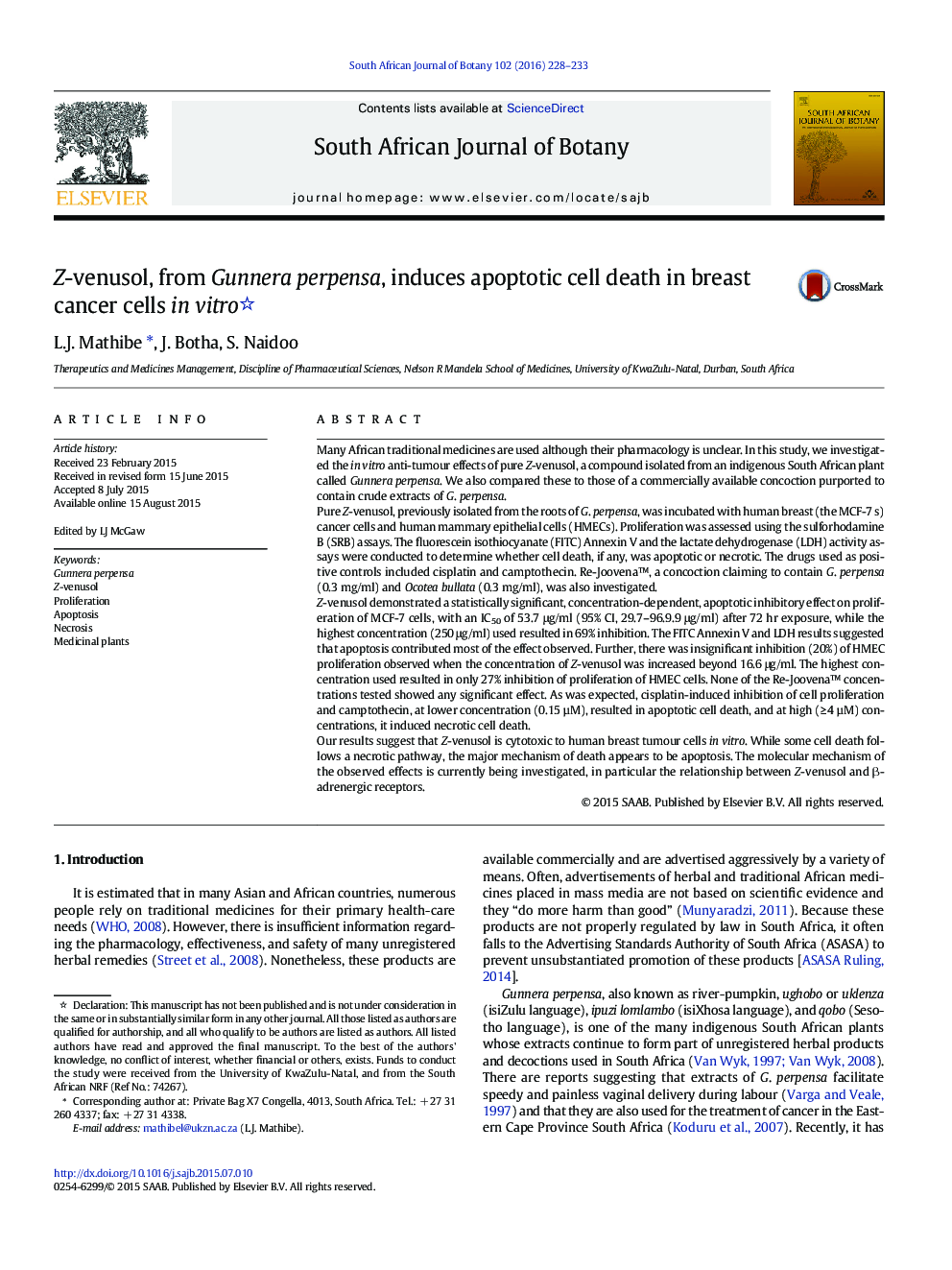| کد مقاله | کد نشریه | سال انتشار | مقاله انگلیسی | نسخه تمام متن |
|---|---|---|---|---|
| 4520170 | 1625156 | 2016 | 6 صفحه PDF | دانلود رایگان |

• Z-venusol is cytotoxic to human breast cancer cells (MCF-7 s) in vitro.
• Z-venusol induces apoptotic cell death.
• Z-venusol is less harmful to normal breast cancer cells (HMECs) in vitro.
Many African traditional medicines are used although their pharmacology is unclear. In this study, we investigated the in vitro anti-tumour effects of pure Z-venusol, a compound isolated from an indigenous South African plant called Gunnera perpensa. We also compared these to those of a commercially available concoction purported to contain crude extracts of G. perpensa.Pure Z-venusol, previously isolated from the roots of G. perpensa, was incubated with human breast (the MCF-7 s) cancer cells and human mammary epithelial cells (HMECs). Proliferation was assessed using the sulforhodamine B (SRB) assays. The fluorescein isothiocyanate (FITC) Annexin V and the lactate dehydrogenase (LDH) activity assays were conducted to determine whether cell death, if any, was apoptotic or necrotic. The drugs used as positive controls included cisplatin and camptothecin. Re-Joovena™, a concoction claiming to contain G. perpensa (0.3 mg/ml) and Ocotea bullata (0.3 mg/ml), was also investigated.Z-venusol demonstrated a statistically significant, concentration-dependent, apoptotic inhibitory effect on proliferation of MCF-7 cells, with an IC50 of 53.7 μg/ml (95% CI, 29.7–96.9.9 μg/ml) after 72 hr exposure, while the highest concentration (250 μg/ml) used resulted in 69% inhibition. The FITC Annexin V and LDH results suggested that apoptosis contributed most of the effect observed. Further, there was insignificant inhibition (20%) of HMEC proliferation observed when the concentration of Z-venusol was increased beyond 16.6 μg/ml. The highest concentration used resulted in only 27% inhibition of proliferation of HMEC cells. None of the Re-Joovena™ concentrations tested showed any significant effect. As was expected, cisplatin-induced inhibition of cell proliferation and camptothecin, at lower concentration (0.15 µM), resulted in apoptotic cell death, and at high (≥ 4 µM) concentrations, it induced necrotic cell death.Our results suggest that Z-venusol is cytotoxic to human breast tumour cells in vitro. While some cell death follows a necrotic pathway, the major mechanism of death appears to be apoptosis. The molecular mechanism of the observed effects is currently being investigated, in particular the relationship between Z-venusol and β-adrenergic receptors.
Journal: South African Journal of Botany - Volume 102, January 2016, Pages 228–233